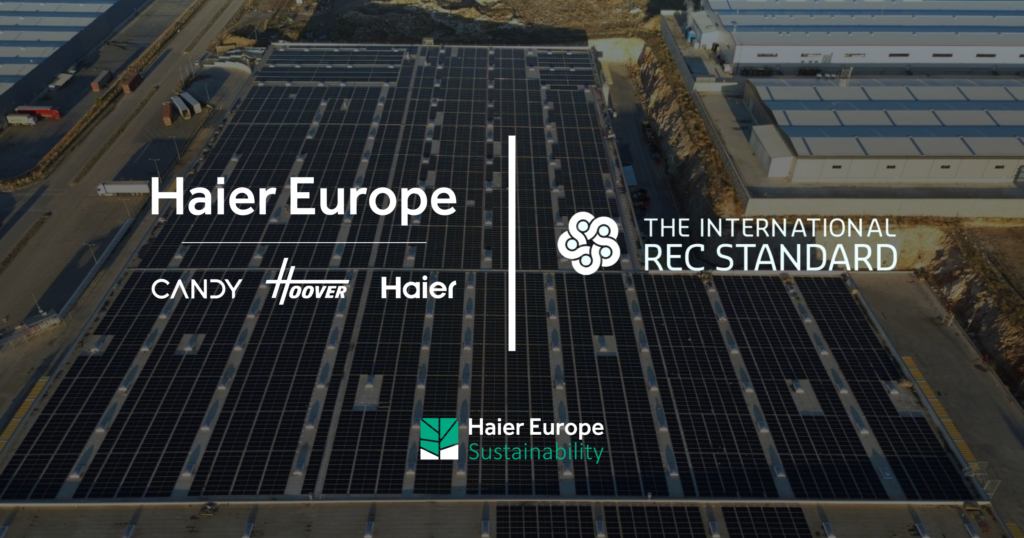Haier Europe receives the I-REC Certificate for its sustainable operations in Turkey
Haier Europe announces a new milestone in its sustainability journey with the achievement of the International Renewable Energy Certificate (I-REC), attesting that 100% of the electricity used in the company’s manufacturing and administrative operations in Turkey is now generated from renewable sources.
This significant achievement covers the entire 2024 calendar year and marks a major milestone in the company’s ongoing commitment to mitigate its environmental impact and contribute to global efforts to combat climate change.
The I-REC certificates are issued whenever one megawatt-hour (MWh) of electricity is generated and delivered to the electricity grid from a renewable energy resource. Haier Europe has successfully redeemed the total amount of certificates that cover the totality of its operations in Turkey.

“We have the ambition of achieving 60% renewable energy across all the company’s-controlled sites by 2025. Receiving the I-REC certificate demonstrates our continuous efforts to reduce carbon emissions in all our operations and our commitment to this goal” said Karim Bruneo, Corporate Communication and Sustainability Director at Haier Europe.
Haier Europe’s sustainability efforts extend beyond renewable energy consumption. Earlier this year, the company installed solar panels at its dishwasher factory in Turkey, covering approximately 60% of the energy needs for its dishwasher and tumble dryer production facilities. Additionally, Haier Europe has successfully recycled or recovered 98% of the total waste produced at its Turkish manufacturing sites, as part of its commitment to achieving “Zero Waste to Landfill” certification.
These initiatives are part of Haier Europe’s broader sustainability strategy, which includes a long-term vision for reducing emissions, enhancing energy efficiency, and driving operational performance. Haier Europe is actively involved in the Science Based Targets Initiative (SBTi), working towards achieving at least 60% renewable energy at all its global sites by 2025, demonstrating its leadership in environmental stewardship.

